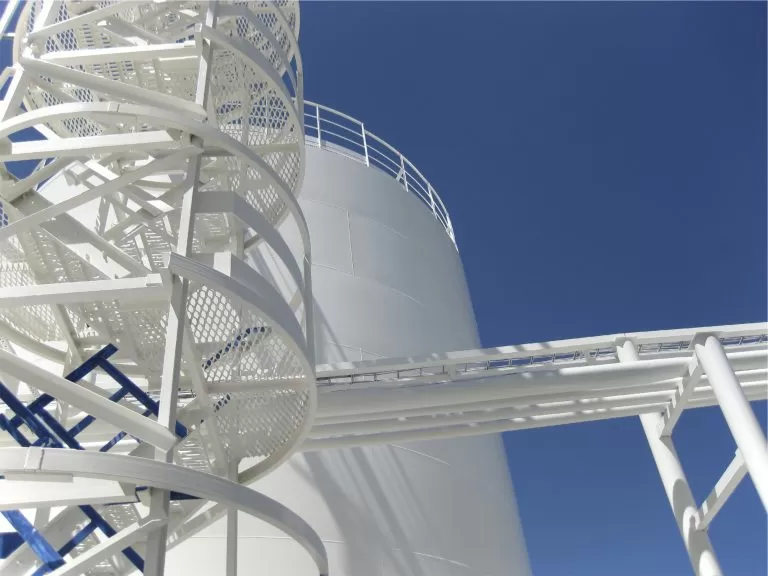Check out our White Paper Series!
A complete library of helpful advice and survival guides for every aspect of system monitoring and control.
1-800-693-0351
Have a specific question? Ask our team of expert engineers and get a specific answer!
Sign up for the next DPS Factory Training!

Whether you're new to our equipment or you've used it for years, DPS factory training is the best way to get more from your monitoring.
Reserve Your Seat Today
Many industries depend on their remote water tanks. Ensuring that they remain full and free from leaks requires continual visits. But visits to these distant locations cost money related to employees, fuel, and vehicle wear and tear.
If visits are scheduled around average estimates of water use, they can fail to respond to actual conditions. This results in wasted drive time, without eliminating the chance of tanks going dry or springing leaks. Without eyes on the site, leaks can worsen, and tanks can end up dry for long periods. The solution is remote water tank monitoring.
By installing remote terminal units (RTUs) on-site, companies can monitor water levels from their central offices.
This allows them to respond to problems as soon as they arise, instead of waiting for the next scheduled visit. When they do respond, they'll know what they're dealing with ahead of time, enabling technicians to travel equipped with the right tools for the job.
Water is heavy and difficult to transport. Often, water needs for populations or various industries require more water than is available from the local ecosystem. In other cases, water tanks are necessary to hold contaminated water until it can be treated and safely returned to circulation. As such, water tanks are essential equipment for several critical industries in the U.S. and abroad, including:
Both drinking water and wastewater systems rely on water tanks to fulfill their duties. Public water systems use water tanks to hold water in reserve before it is used or to preposition water for easy use - such as on the top of skyscrapers.
Wastewater systems rely on holding tanks and ponds to treat large amounts of water before releasing it or returning it to circulation.
Agriculture, particularly open-range ranching, often occurs in remote areas. Some, such as the deserts of Arizona, New Mexico, and West Texas, have limited access to water and rely on water tanks to keep livestock adequately hydrated.
Water tanks are also used to irrigate crops in dry seasons. Advanced monitoring functions can be used for digital farming, controlling irrigation at the touch of a button.
Among other uses, gas companies rely on holding tanks and ponds to store fracking fluid before and after use. Keeping a close on holding tanks and ponds prevents environmental contamination, as well as ensuring regulatory compliance.
Mining operations can use large amounts of water to unearth or process minerals. As in oil and gas operations, this water must be kept in holding tanks or ponds before and after it has been used operationally.
Monitoring water prevents leaks and contamination while demonstrating compliance.
Remote monitoring solutions for each industry follow similar patterns, helping protect valuable assets and the environment while preventing fines from regulators. The tools employed are often the same as well: remote terminal units and master stations.
RTUs are multi-capable devices, able to monitor several conditions at once. In addition to watching water levels, RTU sensors can detect:
Monitoring these conditions provides tank owners with substantial insight into the minute-to-minute conditions of their expensive equipment far in the field.
Companies and utilities with more than ten tanks to monitor will find that individual alerts coming from RTUs for each condition at each tank will become more of a nuisance than a benefit.
To monitor large numbers of tanks, companies employ master stations, otherwise known as alarm masters. Master stations provide several benefits, including:
Displaying all tank, environmental, and equipment conditions on a central computer screen
Master stations enable operations to go from single-instance monitoring to monitoring entire networks. On top of aiding water tank monitoring, they can also receive reports from other important equipment and assets used by utilities, agriculture, oil and gas, and mining companies. This cohesive, encompassing network coverage provides significant benefits, preventing breakdowns and improving maintenance results.
Remote water tank monitoring is an indispensable ability for any industry which requires large amounts of water. Combined with remote monitoring of other large assets and infrastructure, it is a critical ability for companies seeking to minimize their maintenance costs and maximize their reliability.
DPS Telecom provides reliable remote monitoring equipment for water tanks and other important assets. Our experts can help you develop your remote monitoring system, and provide important installation insights. Reach out and get a quote today!
Image courtesy Shutterstock